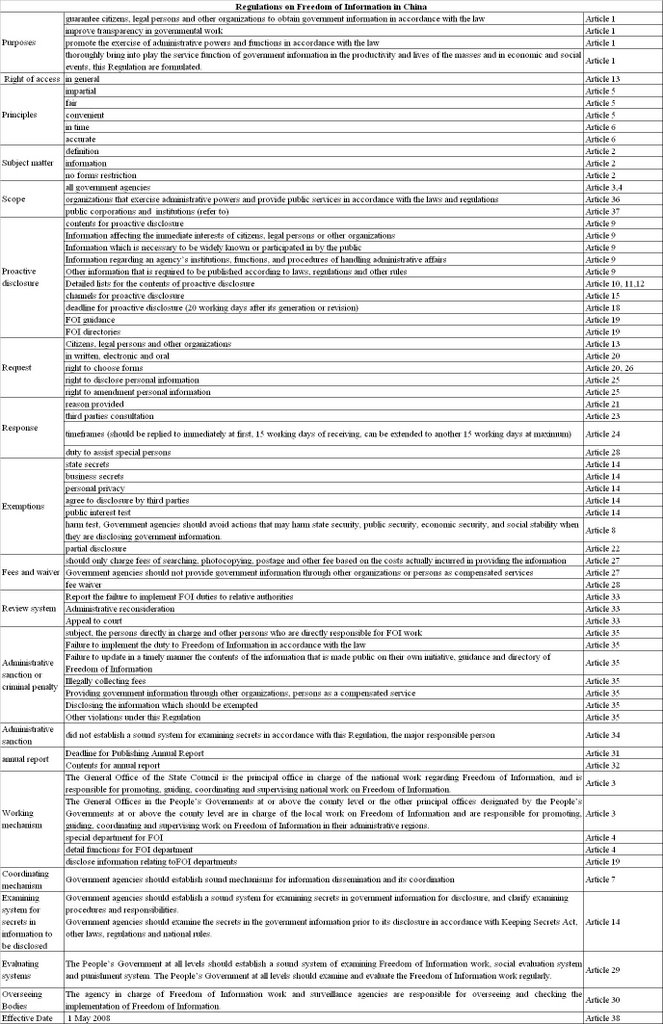Decree issued to boost gov't transparency
Take from gov.cn on 24 April 2007
The State Council, China's cabinet, on Tuesday granted the release of a set of milestone regulations to boost official transparency, ordering government departments to be more open in giving out information.
Premier Wen Jiabao has signed a decree of the State Council to promulgate the regulations, which are likely to become the country's most specific and progressive rules encouraging the publicity of government information when they take effect on May 1,2008.
Governments at various levels are required to give out information which involves the immediate interests of individuals and groups, which should be known by the masses, and which explains administrative institutions and procedures, the regulations say.
Listed as priorities by the State Council are details of how government departments plan to deal with emergencies, government expenses, specific charges for administrative and public services, and results of investigations into environmental protection, public health and food and drugs safety.
Local governments are required to publicize data on land acquisitions, residence relocations and related compensation.
Township authorities have to give out information on land use, financial accounting, the operation of rural collective enterprises and the family situations of local residents in order to ensure the fair enforcement of the family planning policy.
The regulations also contain a clause saying official information release "should not harm state security, public safety, normal economic operation and social instability".
Governments at various levels are required to compile information directories, which should include the name, address, telephone and fax numbers and e-mail address of departments that have a responsibility to release official information.
Government departments will be checked regularly to see whether they withhold information and the public is encouraged to report information blackouts, according to the regulations.
In case the government fails to carry out its obligations defined by the regulations, officials responsible should be punished if the violations are serious, the regulations say.
The rules also give the public the right to seek information from the government through a written inquiry.
Upon receiving the inquiry, the administrative staff should respond immediately if possible, the regulations say. If the inquiry can not be replied immediately, it should be responded within 15 working days, or 30 working days at most.
In the meantime, the regulations remind government departments to steer clear of "state secrets, confidential commercial information and infringement on an individual's privacy".
Officials should consult the country's laws to determine whether or not it is appropriate to make certain information public, the regulations say. If they can not decide, they should report to higher authorities.
Experts say this is a remarkable progress for China, a country where death tolls from even natural calamities were considered a taboo.
On July 28, 1976, the country witnessed the devastating Tangshan earthquake in north China's Hebei Province. But the report of a death toll of 240,000 people was released three years later.
In 2003, the central authority only realized the importance of timely official information release when the Severe Acute Respiratory Syndrome (SARS) was spreading extensive. #

No comments:
Post a Comment